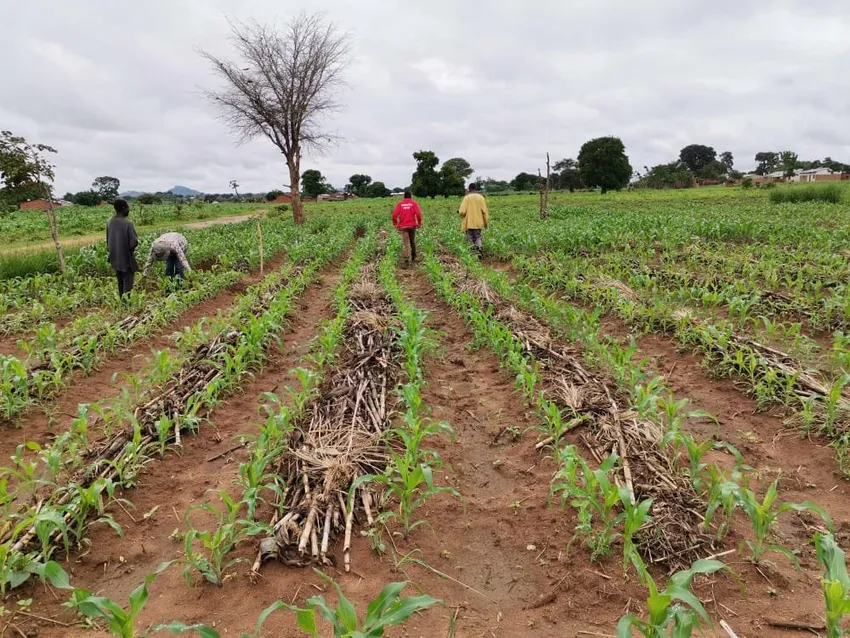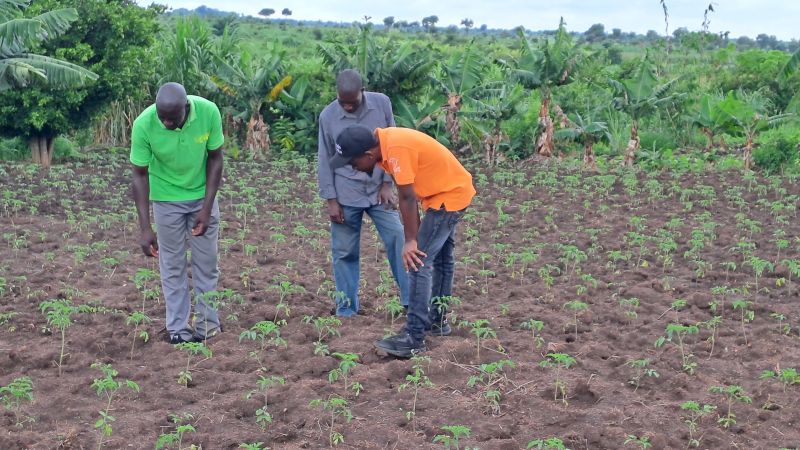Soil loss is a major threat to agricultural development in the world including Malawi, and it for this reason, the south-east African nation’s development partners have pledged to support the country’s Soil Management Action Plan and other agricultural endeavours with $50 million.
This comes hot on the heels as Malawi President Dr Lazarus Chakwera held a meeting with the USAID, AGRA and the International Fund for Agricultural Development (IFAD), among others in Nairobi, Kenya on the sidelines of the Africa Fertilizer and Soil Management Summit.
The Malawi leader had invited the partners to support Malawi’s soil management and restoration agenda to enhance food and nutrition security.
In response, AGRA committed $5 million, approximately K8.6 billion, while IFAD pledged $45 million towards agricultural initiatives which can potentially employ 250 thousand youths.
Agriculture Minister, Sam Kawale, said:
“This is a ‘vote of confidence’ Malawi’s agricultural development agenda.”
The size of the agricultural sector in the Malawian economy renders it a major limitation to the overall economic development of the country.

Soil loss reduces cultivable soil depth, but also takes away fertile soils from farmlands.
The net effect is a loss of agricultural productivity, increased expenditure on fertilizers, and a general decline in profitability of crop production.
The aim of the project is to analyse the economic impact of both soil and nutrient loss in Malawi with new country-representative data on soil loss and nutrient indicators collected through field surveys, merged with detailed climatic data and socio-economic information.
It translates soil loss and nutrient loss into yield loss and estimates the economic impact of loss on agricultural production as a result of soil degradation and then, it identifies best practices to mitigate the soil loss phenomenon.
The agricultural sector continues to be the most important sector in the Malawian economy.
It accounts for 39 percent of gross domestic product (GDP) 85 percent of the labour force and generates about 83 percent of foreign exchange earnings.
The Malawi national surveys estimate that crop production accounts for 74 percent of all rural incomes.

Malawi has a lot of inadequacies in its agriculture sector and systems such as paucity in the science and knowledge of current and future impacts of climate change on agriculture, weak institutional and inadequate technical capacities, limited technological innovation and low adoption as well as poor infrastructure.
Chronic problems related to low and declining soil fertility affect agricultural production and food security in Sub-Saharan Africa.
Soils in the region are commonly deficient in nitrogen, carbon, sulfur, and phosphorus with population pressure and continuous crop cultivation further exacerbating land degradation.
While mineral fertilizers can help preserve or improve soil fertility, logistical, financial, and informational barriers among smallholders, farmers cultivating two hectares or less, result in their limited use.
In addition, few farmers in the Malawi, employ agricultural practices to preserve and build soil quality, such as cultivation of grain legumes, pigeon pea, groundnut, common bean or nitrogen-fixing trees and shrubs.
Malawi has a sub-tropical climate, which is relatively dry dry and strongly seasonal.
The warm-wet season stretches from November to April, during which 95 percent of the annual precipitation takes place.
“This is a ‘vote of confidence’ Malawi’s agricultural development agenda.”
Sam Kawale
Minister of Agriculture



